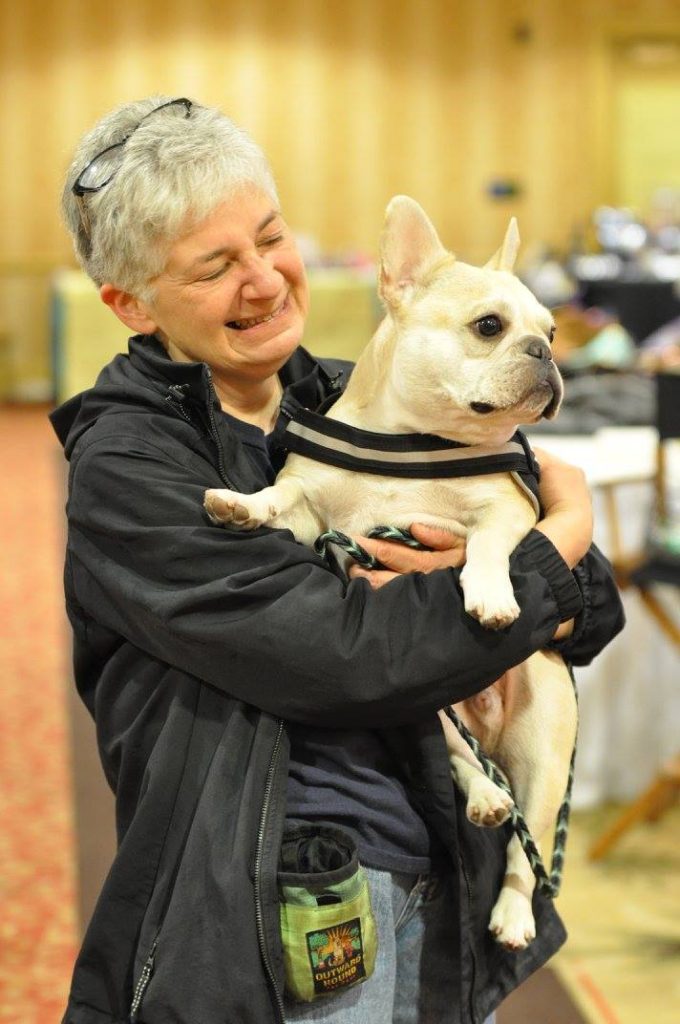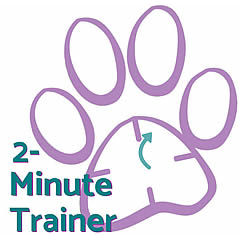Whether you have a houseful of dogs, or only one at a time, you know that every dog is unique. Even if they’re all the same breed. Even if they’re closely related. Just like you and your siblings are distinct and different individuals, so are dogs.
Most people, especially dog people, know this. But almost every one of us disregards it, to some extent, in training our dogs. Whatever annoying things your last dog did, you’ve trained this one not to.

Everyone does some overcompensating for past mistakes. We’ve done it, too. For example, when Hope’s French Bulldog Teddy was a puppy, she carried him around all the time. When he grew up, weighed 26 pounds, and wanted to be carried around all the time, Hope realized the error of her ways..
So when Torque came along, she was conscientious about having him walk on his own four feet. It worked too well. Picking Torque up scares him, and he hates being carried around.
Everybody does it
We’ve seen other examples among our beginner obedience students. One of the dogs in the last session was a Standard Poodle, not even two years old. This dog is a frequent victim of my-other-dog-itis. Their other dog (whom we’ve never met), sounds like a smart, problem-solving, mischief-making large-and-in-charge dog. And because of their experience with their first dog, the Poodle basically wasn’t allowed to make his own decisions about anything, ever.
At first, the Poodle’s lack of interest or engagement in any training games had us puzzled. Poodles, especially Standards, are among the brightest dog breeds. They’re intelligent and trainable dogs with a sense of humor and a touch of goofiness. Most Poodles would be right in there, playing training games and willing to keep playing just about forever.
Then we kept hearing about this family’s other dog; how smart she is, what a troublemaker she is, and how she was “alpha” in the household. We haven’t talked much about the “alpha” dog thing – because it’s nonsense and we wish it would go away. But there are still people subscribing to that disproved theory.
And the light bulb turned on. This dog wasn’t engaging in training games because he never had the chance to experiment, try things, make mistakes, get over them, and keep playing.
Let them learn
The Poodle people didn’t want a repetition of their older dog. So they tightly controlled every aspect of this dog’s life. He didn’t know how to make good decisions, because he’d never had to make any decisions at all. He didn’t know “trying” was an option.
Fortunately, his people extended themselves to embrace training games. By the end of the session, this dog started to think for himself and started to show his real potential. He’s turning into the Poodle he could be. Allowing your dog the time it takes, being patient, consistent, and trusting in the process isn’t something every dog person can do.
A friend of ours, who is a top-tier Obedience competitor, freely admits she doesn’t have the patience to do the hardest thing in dog training – waiting. Doing nothing while the dog figures things out. And now that she has a young dog who lacks confidence, it’s a big problem.
Build them up
A dog who plays training games is a more confident dog. That dog has been rewarded for making good decisions. Has earned praise for thinking. That dog knows how to figure things out. That dog also trusts their person to give them feedback when they choose wisely. And knows their person won’t let anything bad happen to them.
As your dog’s trainer, it’s up to you to foster your dog’s confidence. It’s absolutely natural to try to avoid mistakes you may have made with past dogs. And you should, by all means, try to make all new mistakes with a different dog. Always keeping in mind that every dog is unique.






